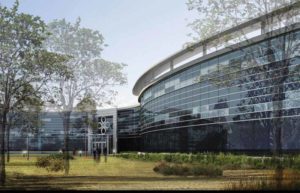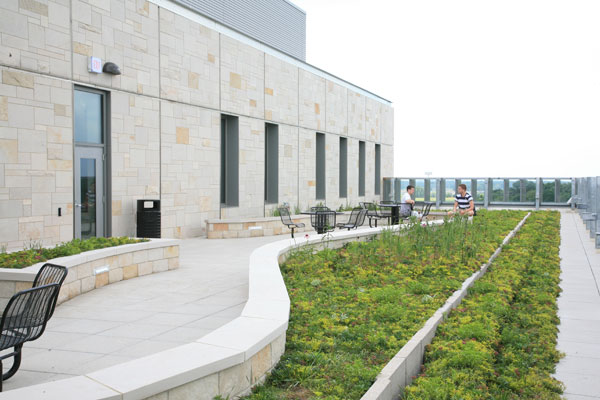High-density polyiso cover boards
Additional considerations when selecting a cover board

Image courtesy Polyisocyanurate Insulation Manufacturers Association
Prior to installation, roofing contractors should protect HD polyiso cover boards from exposure to moisture and keep them safe from other hazards like open flames. The product is typically delivered to the jobsite in manufacturer wrapped bundles. Like all roofing materials stored on the jobsite or roof, care should be taken to ensure cover boards are properly protected and stored to prevent materials from blowing off the roof. For additional information on recommended storage and handling procedures, it is advisable to consult the Polyisocyanurate Insulation Manufacturers Association’s (PIMA’s) Technical Bulletin 109, Storage and Handling Recommendations for Polyiso Roof Insulation. Additionally, it is best to install the quantity of roofing material (insulation and cover board) that can be covered the same day by a roof-covering material. HD cover boards are tested to meet the applicable product and roof assembly standards for fire performance. For information on evaluated assemblies including HD cover boards, interested parties are encouraged to review the third-party roof assembly listings from accredited testing agencies such as Underwriters Laboratory (UL) and Factory Mutual (FM).
Finally, like polyiso insulation products, HD cover boards are manufactured using a blowing agent with low global warming and zero ozone depleting potential. Products sold with a thermal resistance value (R-value) should be tested in accordance with industry standards. R-values for closed-cell foam products are reported as aged-values to reflect the loss of any blowing agent.
Case study

Photo courtesy Soprema
In 2016, the dairy co-operative Agropur opened its new, two-storey office building in Longueuil, Qué., that earned a Leadership in Energy and Environmental Design (LEED) certification from the Canada Green Building Council (CaGBC) in 2017. The project allowed Agropur to consolidate four existing offices into a single, unified 23,226-m2 (250,000-sf) campus in a heavily wooded environment. The new campus is adjacent to its existing distribution centre and quality assurance (QA) labs.
The campus offers a state-of-the-art office environment, underground parking for 700 cars, as well as amenity areas, such as a cafeteria, gymnasiums, and relaxation and conference rooms. The building was designed in a series of narrow wings, with many windows to allow natural light and continuous views of the surrounding forest.
The building was designed by Le Groupe Architex, and the roof was installed by Truchon Roofing. Since the exterior of Agropur’s building is glass, regular window washing is a must. The roof needed solid bases to protect it from the heavy equipment and accompanying workers who would launch from the roof.
The architect chose HD polyiso cover boards to ensure the roof materials installed below the board are not damaged by additional loads. Unlike other types of cover board, HD polyiso offers the added thermal resistance, which contributes to improved energy efficiency.
Commercial low-slope roof systems are expected to perform during the service life of a building, so understanding and utilizing products to help enhance the roof’s performance and longevity is advisable when planning for one. Selecting products offering performance benefits as well as ease of installation is a win for both the contractor and building owner. With proper installation, HD polyiso cover boards provide versatile and resilient low-slope roof system solutions. Whether it is exposed to severe weather or maintenance personnel servicing rooftop equipment, a long-lasting roof system means satisfied building owners.
Justin Koscher is president of the Polyisocyanurate Insulation Manufacturers Association (PIMA). Prior to joining PIMA, Koscher was the director of polyurethanes markets at the American Chemistry Council’s (ACC’s) Center for the Polyurethanes Industry (CPI) for three years, and spent four years as vice-president of public policy and staff counsel for the Center for Environmental Innovation in Roofing. He also holds a law degree from DePaul University College of Law in Chicago, Ill. Koscher can be reached at koscher@pima.org.


